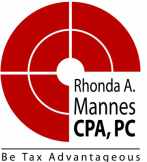|
Several months ago I was asked to write an article discussing things accountants wished people knew. Here you have it:
So you want to know what I, a Certified Public Accountant (more commonly known as a CPA) wished people knew about their taxes? I really could write a book, but here are my top ten: 1. When you sign your return you are swearing that you have been truthful. Lying on your tax return is against the law! The IRS takes a dim view of less than truthful taxpayers, imposing hefty penalties, interest on unpaid taxes and in some cases prison time. 2. When you ask a licensed tax professional to prepare your tax return they are swearing that to the best of their knowledge their client has told them the truth. Our signature on your tax return is our testimony to that fact. Please do not ask us to lie for you! The IRS will impose penalties and in some cases bar us from preparing tax returns in the future. This is our livelihood, and we are not willing to risk it. 3. An extension of time to file is not an extension of time to pay. If you expect to owe money, you must attempt to estimate your tax liability and submit it with your extension. If you wind up owing taxes after you have filed your extension you will likely be assessed for interest and underpayment penalties. 4. Do not neglect to file your tax return. If you do not file, and you have a tax liability due, you will be assessed a non filing penalty, possible underpayment penalties in addition to interest which is compounded monthly. 5. If your tax professional recommends making estimated payments, by all means either make them or adjust the number of exemptions you claim on your earnings. Either making estimated payments or having more federal taxes withheld from each paycheck will lighten your tax burden on April 15th avoiding underpayment penalties and interest. 6. Your tax professional did not get you that big refund. You are merely receiving the repayment of an interest free loan you gave the government. By adjusting the number of exemptions you claim on your earnings you can have more money in your pocket each payday. You might even be able to invest these funds and actually see returns on your money. 7. Tax laws are constantly changing. Each year your tax professional attends (or should) classes to stay abreast of the most current tax laws. To those that attempt to prepare their own taxes, I generally ask them if they intend to take out their own appendix or represent themselves in court. There are some things that you should hire a professional to do. Preparing your taxes is one of them. For those that insist on going it alone, I do give them my card and let them know I am also licensed to represent them before the IRS at a later date. 8. Preparing your taxes doesn’t end with filing. You should sit down with your tax professional during the year to review your tax situation, especially if you’ve had a substantial change in income, increased or lost a dependent (child born or child leaves the nest), change jobs, or change marital status. 9. Don’t commingle funds. If you own a business, do not pay personal funds from that business bank account. This is especially true, if you are seeking to limit your liability through the formation of a legal business entity such as an Limited Liability Company, or corporate entity. Commingling funds can nullify the legality of the protection afforded by such entities and cause the corporate veil to be pierced. 10. Do not ignore IRS correspondence. The IRS will not go away or forget about you. Taking care of correspondence at the outset will avoid additional grief later and possibly save you money in the long run. Please feel free to contact me with any questions or comments. Comments are closed.
|
AuthorRhonda A. Mannes, Archives
December 2018
Categories
All
|



 RSS Feed
RSS Feed